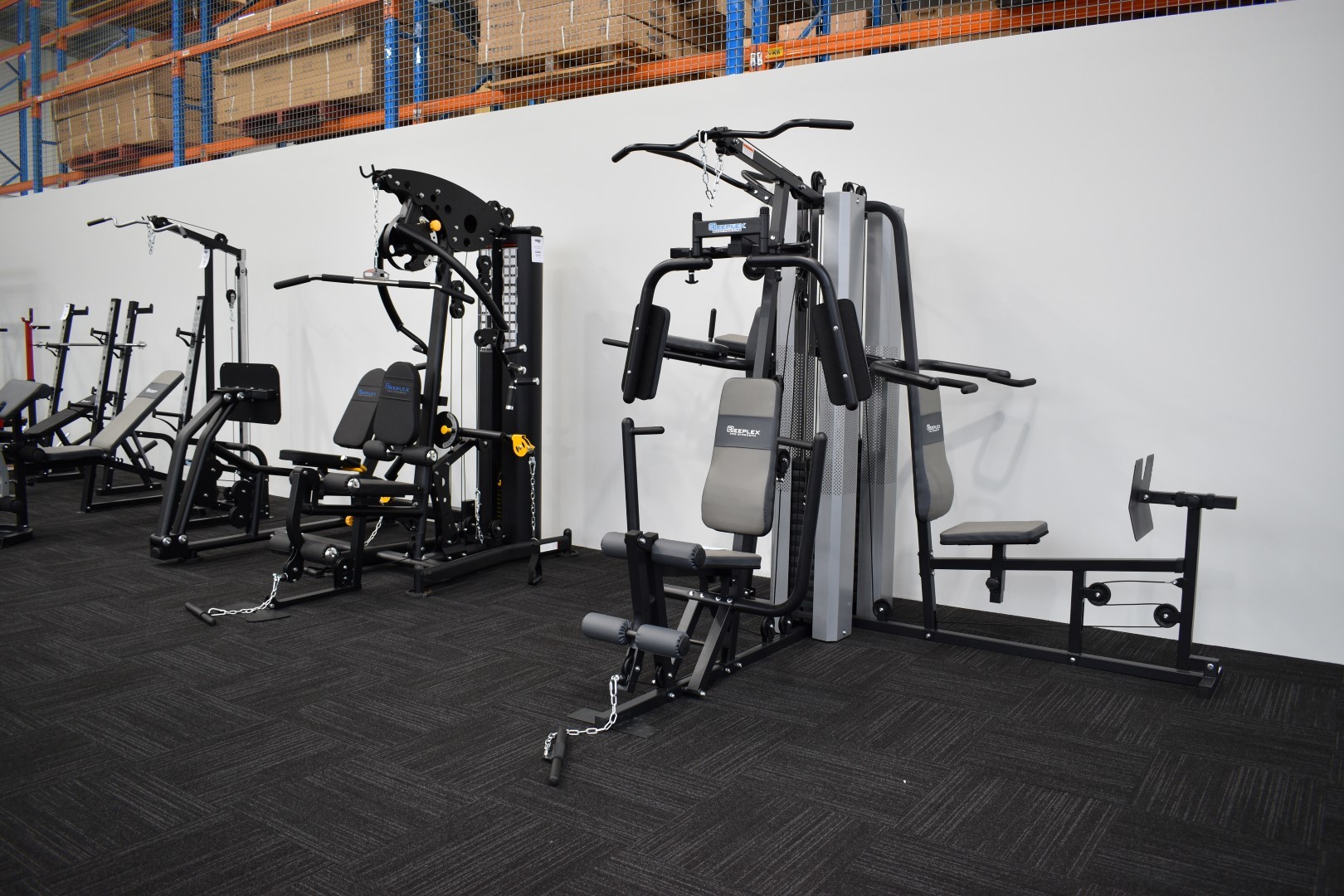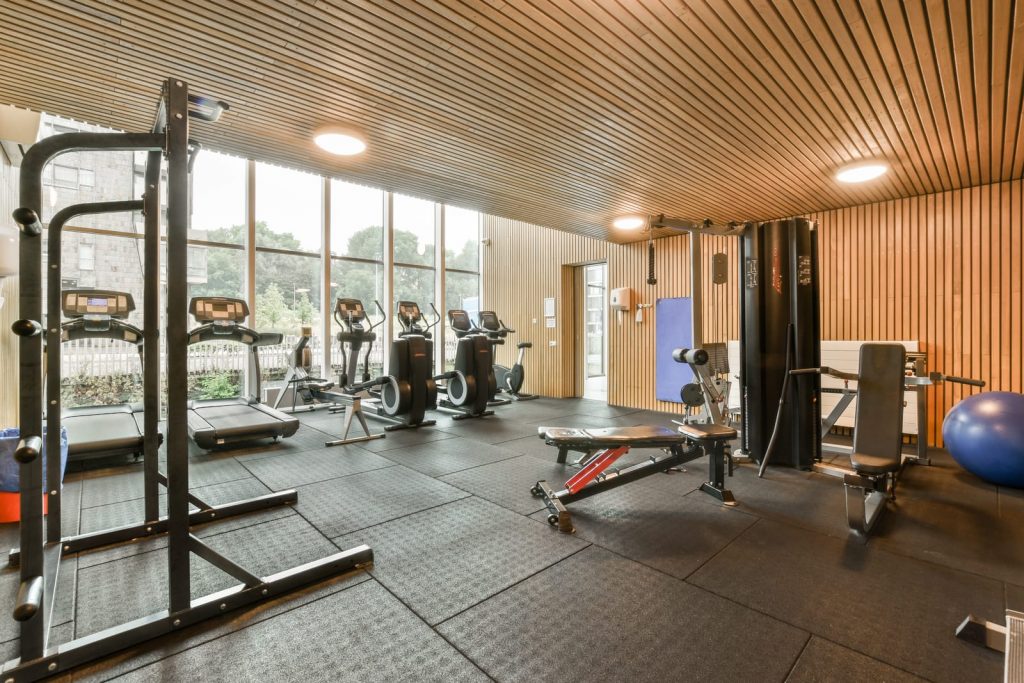
Choosing Between a Home Gym and Commercial Gym: What’s Right for You?
Regular exercise is crucial for maintaining overall health and fitness. The decision can be challenging. There are several factors to consider in making the right choice that suits your lifestyle and fitness goals.
On one hand, a home gym offers convenience, allowing you to work out on your own schedule without any distractions. It provides a personalized environment where you can set up equipment according to your preferences.
On the other hand, a commercial gym offers a wide range of equipment options, social interaction with like-minded individuals, and access to professional trainers.
In this blog post, we will explore the pros and cons of both options to help you make an informed decision about which type of gym is best for you.
Deciding Between Home Gyms and Commercial Gyms
Understanding Personal Fitness Goals
To make an informed decision between a home gym and a commercial gym, it is crucial to understand your personal fitness goals. Consider what you want to achieve through your workouts.
Are you focused on building muscle, losing weight, improving cardiovascular health, or simply staying active? Knowing your goals will help determine which option aligns better with your needs.
Evaluating Budget and Available Space
Another important factor to consider is your budget and available space for a gym setup. Home gyms can be more cost-effective in the long run as they eliminate the need for monthly gym membership fees.
However, setting up a home gym requires an initial investment in equipment. On the other hand, commercial gyms offer access to a wide range of equipment without the need for purchasing or maintaining them yourself.
Assess the available space in your home. If you have limited room, a compact home gym setup might be more suitable. Conversely, if you have ample space and enjoy having various exercise options at your disposal, a commercial gym could be the better choice.
Convenience and Accessibility
The convenience and accessibility of both options should also be taken into account when making this decision. With a home gym, you have the advantage of working out whenever it suits you best without having to travel. This can save time and eliminate any barriers that may prevent regular exercise.
On the other hand, commercial gyms often offer extended operating hours and additional amenities such as group classes or personal training services that may enhance your workout experience. Consider whether these factors are important to you in maintaining motivation and achieving your fitness goals.
By considering these factors – understanding personal fitness goals, evaluating budget and available space, and assessing convenience and accessibility – you can make an informed decision between a home gym or commercial gym that aligns with your needs and preferences.
Read Also: How to Choose Multi-Station Home Gym Equipment Package
Advantages of Home Gym Ownership
Enjoying privacy and freedom to exercise at any time.
Having a home gym offers the incredible advantage of exercising in complete privacy. You don’t have to worry about feeling self-conscious or judged by others, allowing you to focus solely on your workout.
Whether you prefer early-morning sessions or late-night sweat sessions, your home gym grants you the freedom to exercise whenever it suits you best. No more waiting for equipment or dealing with crowded spaces.
Saving time by eliminating the need to commute to a gym.
One of the biggest advantages of owning a home gym is the time-saving aspect. Say goodbye to long commutes and rush hour traffic just to get your workout in.
With a home gym, all you have to do is step into your designated workout space, saving precious minutes that can be better utilized for other activities. This convenience also eliminates any excuses for skipping workouts due to lack of time.
Customizing your workout space with equipment of your choice.
The power is in your hands. You have complete control over selecting and customizing the equipment based on your fitness goals and preferences.
Whether it’s cardio machines like treadmills or strength training equipment like dumbbells and resistance bands, you can curate a collection that caters specifically to your needs. This personalization ensures that every piece of equipment serves a purpose and aligns with your fitness journey.
Owning a home gym provides numerous advantages such as enjoying privacy during workouts, saving valuable time by eliminating commutes, and customizing the space with equipment tailored to individual needs.
These benefits empower individuals to create an ideal fitness environment within their own homes.
Challenges of Setting Up a Home Gym
Initial Investment Required for Purchasing Equipment
Setting up a home gym requires an initial investment in purchasing equipment. While there are budget-friendly options available, high-quality home gym equipment can be expensive.
From cardio machines like treadmills and stationary bikes to strength training equipment like squat racks and dumbbells, the cost can add up quickly. However, it’s important to consider the long-term benefits and savings that come with owning your own equipment.
Read Also: How Versatile is a Smith Machine for Home Gyms
Limited Space May Restrict Exercise Variety
One challenge of setting up a home gym is limited space, which may restrict the variety of exercises you can perform. Unlike commercial gyms that offer a wide range of machines and equipment, you may need to prioritize certain pieces based on your available space.
For example, if you have a small workout area in your garage or spare room, you might not have enough room for larger cardio equipment or multiple weightlifting stations. This limitation could impact the diversity of your workouts.
Self-motivation and Discipline Are Essential
Another challenge of having a home gym is self-motivation and discipline. When working out at a commercial gym, there is often an energetic atmosphere with other people around who can provide motivation and accountability.
In contrast, exercising at home requires self-motivation to stick to your workout routine consistently. Without external factors pushing you forward, it’s crucial to stay disciplined and committed to achieving your fitness goals.

While these challenges exist when setting up a home gym, they can be overcome with careful planning and dedication. By considering the initial investment required for purchasing equipment, finding creative ways to maximize limited space, and fostering self-motivation and discipline, you can create an effective workout environment at home.
Exploring the Benefits of Commercial Gyms
Commercial gyms offer a multitude of advantages that can enhance your workout experience and help you achieve your fitness goals. Let’s take a closer look at some of these benefits.
Access to a wide range of high-quality equipment
One of the major advantages of joining a commercial gym is the access to a wide variety of high-quality equipment. From cardio machines like treadmills and ellipticals to weight lifting equipment such as dumbbells and squat racks, commercial gyms have it all.
This allows you to target multiple muscle groups and perform various exercises for a well-rounded workout.
Opportunities for group classes and personal training sessions
Commercial gyms often offer group classes led by certified instructors who can guide you through different types of workouts, such as yoga, Zumba, or spin classes. These classes provide structure and motivation while allowing you to learn new techniques and challenge yourself alongside others.
Many gyms also provide personal training services. Working with a personal trainer can be beneficial if you’re looking for individualized guidance, personalized workout plans, and expert advice on proper form and technique.
Social interaction and networking with like-minded individuals
Another advantage of commercial gyms is the opportunity for social interaction and networking with like-minded individuals. Surrounding yourself with people who share similar fitness goals can be motivating and inspiring.
You may even find workout buddies or make new friends who can support you on your fitness journey.
By joining a local gym, you become part of a community where members encourage each other, share tips, and celebrate achievements together.
Read Also: How to Make The Most Out of Pilates Equipment in Home Gym
Drawbacks of Commercial Gym Memberships
Monthly membership fees can add up over time
One of the main drawbacks of commercial gym memberships is the cost. While it may seem affordable at first, those monthly membership fees can quickly add up over time. For individuals on a tight budget, this recurring expense may become burdensome and difficult to maintain in the long run.
Crowded facilities during peak hours may lead to waiting times
Another disadvantage of commercial gyms is the potential for overcrowding, especially during peak hours. This means that you might have to wait for your turn to use certain equipment or machines, which can be frustrating and time-consuming. The limited availability of equipment during busy periods can hinder your workout routine and disrupt your flow.
Lack of privacy due to the presence of other gym-goers
Commercial gyms often attract a large number of people, resulting in a lack of privacy during your workouts. With other gym-goers around you, it can be challenging to focus solely on yourself and your fitness goals. This lack of privacy may make some individuals feel self-conscious or uncomfortable while exercising.
In addition to these drawbacks, there are other factors worth considering when deciding between a home gym and a commercial gym. These include convenience, flexibility in terms of workout timings, cleanliness and hygiene standards, access to specialized equipment or classes, and personalized attention from trainers.
Ultimately, the choice between a home gym and a commercial gym depends on individual preferences and circumstances. Some people may find that the benefits offered by commercial gyms outweigh the drawbacks mentioned above. On the other hand, others may prefer the convenience and privacy provided by a home gym setup.
Comparing Costs: Home Gym Investment vs. Membership Fees
One of the most important factors to consider is the cost. Let’s take a closer look at how the long-term costs of owning a home gym compare to paying monthly membership fees at a commercial gym.
Calculating the long-term costs
Owning a home gym requires an initial investment in equipment, but once you have purchased everything you need, there are no ongoing membership fees. On the other hand, commercial gyms typically charge monthly or annual membership fees that can add up over time. To determine which option is more cost-effective, it’s essential to calculate the total expenses over several years.
Considering additional expenses
While home gyms may seem like a more affordable choice upfront, it’s important to factor in additional expenses such as maintenance, repairs, and upgrades. Equipment can wear out or break down over time, requiring repairs or replacements.
Upgrades may also be necessary as your fitness needs change or if you want to incorporate new workout routines into your regimen. These additional costs should be taken into account when comparing the financial commitment of owning a home gym versus paying for a commercial gym membership.
Read Also: Why a Squad Cage is Important Gym Equipment for Home Gyms
Weighing the financial commitment
The financial commitment of owning a home gym versus having a commercial gym membership will vary depending on individual fitness needs. For those who are highly motivated and dedicated to their fitness goals, investing in a home gym may be worth it in the long run.
However, individuals who prefer variety in their workouts and enjoy access to specialized equipment and classes may find that a commercial gym is more suitable for their needs.
Conclusion
So, which is the best choice: a home gym or a commercial gym? Well, it ultimately depends on your personal preferences, goals, and circumstances. If you value convenience, privacy, and the ability to customize your workouts, a home gym might be the perfect fit for you. On the other hand, if you thrive in a social environment with access to a wide range of gym equipment and classes, a commercial gym could be the ideal option.
Before making your decision, consider your budget and long-term commitment to fitness. Evaluate the advantages and challenges of each option based on your specific needs. Remember, the most important thing is finding a fitness routine that you enjoy and can stick to consistently.
